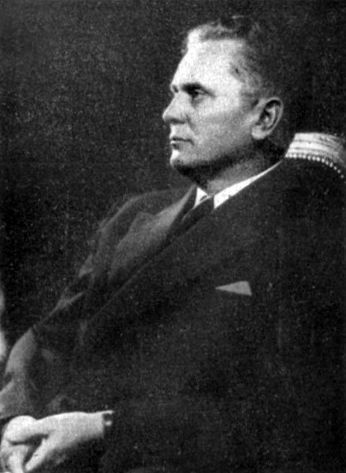On 27 May 1946, Josip Broz Tito, president of the Federal People's Republic of Yugoslavia, accompanied by a large delegation, arrived in Moscow. Stalin immediately received him in the Kremlin, contrary to usual practice, to discuss opportunities for economic cooperation, military supplies, and Yugoslav-Albanian relations.
Tito wanted to maintain a powerful army in Yugoslavia and had already received arms and equipment for 32 divisions from the Soviet Union. He also wanted to set up his own military industry, and Stalin made sure he was given raw materials and metal on favourable terms.
Nevertheless, relations between the two leaders were already uneasy. On 27 May 1945, during a speech in Ljubljana, Tito declared: “We ask that everyone be the master in his own house. We do not wish to pay other people’s debts, or to serve as small change in bargains between them; we will not be mixed up in the politics of spheres of interest. (...) There is no brokering, no dealing with this Yugoslavia.”
Stalin considered this speech an “unfriendly attack on the Soviet Union” and summoned the Soviet ambassador in Belgrade. He told him: “Tell Comrade Tito that if he makes such an attack against the Soviet Union again we shall be forced to reply with open criticism in the press and disavow him.”
Despite this, the Paris Peace Conference agreed to a compromise, largely thanks to the support of the USSR. A larger, eastern part of the Julian March (Serbo-Croatian, Slovene: Julijska Krajina) was transferred to Yugoslavia, while a smaller, western part, called the Free Territory of Trieste, was put under UN administration.
Relations between the two dictators escalated as early as 1947 – Tito's growing popularity in Eastern Europe displeased Stalin. Tito formulated his own principle within the Communist movement, “Titoism,” which proclaimed the independence of decisions from Moscow, and established and led the Non-Aligned Movement.
Source:
Eugene Matonin, “Josip Broz Tito”, Moscow: Molodaya Gvardiya, 2012 – 462 pgs.
























